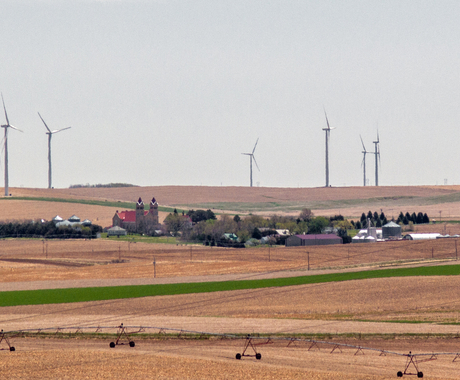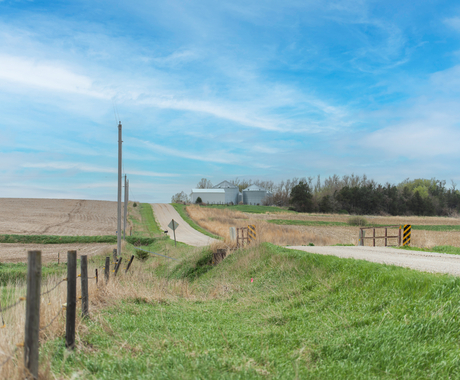Rhea Landholm, brand marketing and communications manager, [email protected] or 402.687.2100 ext. 1025
Lyons, Nebraska - On Wednesday, June 22nd, a coalition of environmental and energy advocates including the Center for Rural Affairs, League of Conservation Voters, Nebraska Wildlife Federation, League of Women Voters, BOLD Nebraska, Nebraska Farmers Union and the Sierra Club will host a community discussion on practical, commonsense ideas that provide Nebraska communities with more opportunities in our state’s energy future.
The event is free and open to the public. The discussion will focus on our current power system in Nebraska, renewable energy, electricity transmission, energy efficiency, ideas for community renewable energy projects and funding for such projects. And everyone attending is encouraged to bring their own ideas as well. The Community Conversation with kick off with a panel of featured participants, and then the floor will be open for group conversations.
WHAT: Community Conversation on Nebraska’s Energy Future
WHEN: Wednesday, June 22nd, 2016 from 6:30 ~ 8:30 p.m.
WHERE: UNK’s Campus, Copeland Room 140, 2507 11th Ave, Kearney, Nebraska
(Free Coffee and Pie Served)
“This is an important time to share your questions, ideas, and thoughts about Nebraska’s energy future,” said Lauren Kolojejchick-Kotch with the Center for Rural Affairs. “Right now the Nebraska Energy Office, Nebraska Department of Environmental Quality, and our Public Power Districts are hard at work planning for Nebraska's energy future. The Nebraska Energy Office and these agencies have been tasked with putting together a comprehensive State Energy Plan that looks at the cost of fuel, future customer growth, where we currently get our power from, future generation options, and environmental regulations. The final plan will likely include recommendations for future energy investments and other decisions regarding our public power system.”
Kolojejchick-Kotch continued, “These decisions will affect all Nebraskans. This means we all should have a say when it comes to the decisions involved in keeping our lights on. At the same time, Nebraska’s Public Power system is unique, as the only publicly owned state run electric utility system in the nation. Customer-owners from around the state not only deserve to be a part of process to develop a state energy plan, but to weigh in on the priorities of our Public Power Districts. If you want to see greater investment in energy efficiency, this is a time to share that interest.”
Panelists include:
Community Action Partnership of Mid-Nebraska, Jackie L. Harpst… Our coalition believes programs that emphasize reducing and conserving our energy consumption like commercial and residential weatherization projects, especially for low income families that struggle to keep their lights on, are good for the environment and our pocket books, and therefore should be a large part of our state's energy plan. For this reason we have invited Community Action Partnership to be a part of the conversation on June 22nd.
Kearney Mayor, Stan Clouse … Kearney is doing it’s part to keep your lights on and your utility bills low. Join in the conversation with Kearney’s Mayor, Stan Clouse, as we learn about the new city solar project and all of the other great sustainable things the city is doing.
Nebraska Wildlife Federation Director, Duane Hovorka… The Federation has been Nebraska’s voice for people who love wildlife and wild places since 1970, and Hovorka has been part of a statewide initiative to move Nebraska’s electric utilities towards clean energy solutions.
In addition to the Center for Rural Affairs, this event is being hosted by a coalition of environmental and energy advocates including the League of Conservation Voters, Nebraska Wildlife Federation, League of Women Voters, BOLD Nebraska, Nebraska Farmers Union and the Sierra Club. Our goal is to gain feedback from customer-owners that we can take back to our state’s capital and discuss with law and policy makers in our legislature and other state agencies.



